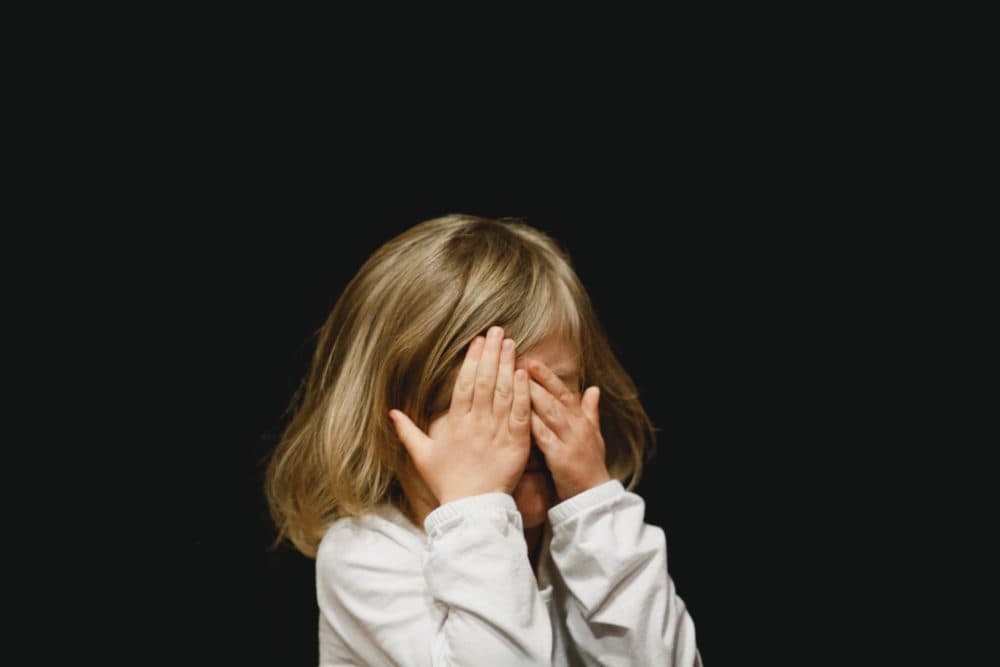Advertisement
Commentary
'Will You Die?' And Other Questions My Kids Have About Death

My 4-and-a-half-year-old twin daughters have been talking about death a lot lately. It comes up in the car on the way home from the grocery store, or just as they’re about to drift off to sleep at night. “Who will die first — you or Dad?” one asked, at bedtime. “Spirits don’t wear clothes,” the other informed me, repeating back the answer I’d given her the day before.
All this talk about death is not unprompted. On a humid morning in late August, a woman was hit by a car in the town where we live. She was on her way to work, in the crosswalk of a busy intersection, when a van struck her and knocked her to the ground. She was taken by ambulance to a hospital where she died of her injuries.
She left behind a husband and two young sons, one of whom goes to preschool with my daughters. I didn’t know her, though we’d probably smiled at each other scurrying through drop-offs and pick-ups. Or stood side-by-side during the Mother’s Day concert last year.
As news of the tragedy traveled throughout the school community, the conversation among parents eventually turned to how we might relay this news to our own kids. Would the school offer resources? Did anyone have books to recommend? Did we really need to tell our children at all?
I told the truth and tried not to flinch.
A quick Google search reveals that there are four concepts kids must grasp to understand death: irreversibility (the idea that death is permanent), finality (a dead person can’t function), inevitability (it happens to everyone) and causality (how it happens). Preschool-aged children, according to the American Academy of Pediatrics, need specific and concrete explanations, because they experience death as something temporary — it’s common for them to ask repeatedly when someone who has died is coming back.
An NPR story about kids with cancer reported something similar. One unspeakably brave family explained death to their ailing 6-year-old son by pulling the curtain beside his hospital bed, stepping behind it and saying, “'This is just like when you're going to be dead. I'm still here, you're still there. We just can't see each other.' ” I was not nearly as eloquent, but I told the truth and tried not to flinch.
We talked after dinner, as their little sister trawled for leftovers under the table. Talking about Mufasa from “The Lion King” wasn’t what I’d planned, but that’s what came out (along with a garbled paraphrasing of Neil deGrasse Tyson’s theory that we’re all made of stars).
Advertisement
“Remember how Mufasa falls off the cliff and it looks like he’s sleeping but he won’t wake up?” I began.
“Scar threw him off, Mom,” one of my daughters said, correcting me.
They seemed to get it. And instantly, their questions turned to the logistical. Who will pick our friend up from school? Where is his mom? What happened to her body? Did she get buried? How did she get dead? They were especially insistent on that last question — “How did she get dead?” — maybe because they wanted some assurance that I wouldn’t die out of nowhere, too.
Preschoolers question without pretense — they simply ask what they want to know. (They also see miracles in ordinary things: dandelions, umbrellas, deflated balloons, ants, those little glow-in-the-dark stars you can stick to the ceiling.) I anticipated that they’d have lots of questions, so I gathered picture books on the topic, of which we read the same two over and over: “Cry, Heart, But Never Break” and “The Heart and the Bottle.” I cringed the first time I read aloud about a character named “Death” and the curious disappearance of a friendly grandfather, but they didn’t get scared. In their eyes, dying was a fine topic for a book; another thing to talk over and learn about. They are starting to understand that death is part of life.
In their eyes, dying was a fine topic for a book; another thing to talk over and learn about.
Being a parent, I’ve learned, is often about walking the tightrope between opposite poles: allowing your child to be her dreamy self and getting her to school on time; taking good care and teaching self-sufficiency. And, as I navigated the inevitable questions that arise in conversations about death -- Am I going to die? Are you going to die? -- shielding from the world and offering the truth.
Sometimes my mind wanders back to the morning of the accident. Did the family have a good morning, with no yelling about missing socks? When had she last spoken to her mom? Did she kiss her husband goodbye?
When I see her son at school, he seems OK, but I wonder if he’s confused about where his mom is and when she’s coming back. I think about how disorienting it will be, years from now, when he sees a version of his tiny self beside her in a photo, but can’t recall her voice or her smell.
My kids have figured out that their friend’s mom wasn’t old; and that there is something especially sad and unusual about the death of a young person. During dinner the other night one of my daughters looked up from her pasta to ask, “Are you going to die when I’m not very old?” I couldn’t bring myself to explain accidents or probabilities. So, I lied.
“No, never,” I told her.
This segment aired on October 18, 2018.
